Early lysosomal maturation deficits in microglia triggers enhanced lysosomal activity in other brain cells of progranulin knockout mice
- PMID: 30180904
- PMCID: PMC6123925
- DOI: 10.1186/s13024-018-0281-5
Early lysosomal maturation deficits in microglia triggers enhanced lysosomal activity in other brain cells of progranulin knockout mice
Abstract
Background: Heterozygous loss-of-function mutations in the progranulin gene (GRN) lead to frontotemporal lobar degeneration (FTLD) while the complete loss of progranulin (PGRN) function results in neuronal ceroid lipofuscinosis (NCL), a lysosomal storage disease. Thus the growth factor-like protein PGRN may play an important role in lysosomal degradation. In line with a potential lysosomal function, PGRN is partially localized and processed in lysosomes. In the central nervous system (CNS), PGRN is like other lysosomal proteins highly expressed in microglia, further supporting an important role in protein degradation. We have previously reported that cathepsin (Cat) D is elevated in GRN-associated FTLD patients and Grn knockout mice. However, the primary mechanism that causes impaired protein degradation and elevated CatD levels upon PGRN deficiency in NCL and FTLD remains unclear.
Methods: mRNA expression analysis of selected lysosomal hydrolases, lysosomal membrane proteins and autophagy-related genes was performed by NanoString nCounter panel. Protein expression, maturation and in vitro activity of Cat D, B and L in mouse embryonic fibroblasts (MEF) and brains of Grn knockout mice were investigated. To selectively characterize microglial and non-microglial brain cells, an acutely isolated microglia fraction using MACS microbeads (Miltenyi Biotec) conjugated with CD11b antibody and a microglia-depleted fraction were analyzed for protein expression and maturation of selected cathepsins.
Results: We demonstrate that loss of PGRN results in enhanced expression, maturation and in vitro activity of Cat D, B and L in mouse embryonic fibroblasts and brain extracts of aged Grn knockout mice. Consistent with an overall enhanced expression and activity of lysosomal proteases in brain of Grn knockout mice, we observed an age-dependent transcriptional upregulation of certain lysosomal proteases. Thus, lysosomal dysfunction is not reflected by transcriptional downregulation of lysosomal proteases but rather by the upregulation of certain lysosomal proteases in an age-dependent manner. Surprisingly, cell specific analyses identified early lysosomal deficits in microglia before enhanced cathepsin levels could be detected in other brain cells, suggesting different functional consequences on lysosomal homeostasis in microglia and other brain cells upon lack of PGRN.
Conclusions: The present study uncovers early and selective lysosomal dysfunctions in Grn knockout microglia/macrophages. Dysregulated lysosomal homeostasis in microglia might trigger compensatory lysosomal changes in other brain cells.
Keywords: Cathepsin; Frontotemporal lobar degeneration; Lysosome; Microglia; Neurodegeneration; Progranulin.
Conflict of interest statement
Ethics approval
No experiments on living animals were conducted for this study. Housing and sacrification of animals as well as use of animal material in this study were performed in accordance with local animal handling laws.
Consent for publication
“Not applicable”.
Competing interests
C.H. collaborates with Denali Therapeutics. The authors declare that they have no competing interests.
Publisher’s Note
Springer Nature remains neutral with regard to jurisdictional claims in published maps and institutional affiliations.
Figures
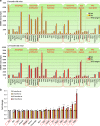
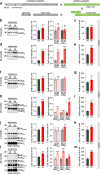
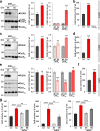
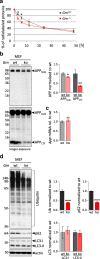
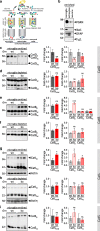
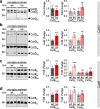
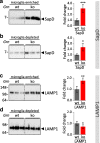

Similar articles
-
Common pathobiochemical hallmarks of progranulin-associated frontotemporal lobar degeneration and neuronal ceroid lipofuscinosis.Acta Neuropathol. 2014;127(6):845-60. doi: 10.1007/s00401-014-1262-6. Epub 2014 Mar 12. Acta Neuropathol. 2014. PMID: 24619111
-
Progranulin Gene Therapy Improves Lysosomal Dysfunction and Microglial Pathology Associated with Frontotemporal Dementia and Neuronal Ceroid Lipofuscinosis.J Neurosci. 2018 Feb 28;38(9):2341-2358. doi: 10.1523/JNEUROSCI.3081-17.2018. Epub 2018 Jan 29. J Neurosci. 2018. PMID: 29378861 Free PMC article.
-
Impaired prosaposin lysosomal trafficking in frontotemporal lobar degeneration due to progranulin mutations.Nat Commun. 2017 May 25;8:15277. doi: 10.1038/ncomms15277. Nat Commun. 2017. PMID: 28541286 Free PMC article.
-
The lysosomal function of progranulin, a guardian against neurodegeneration.Acta Neuropathol. 2018 Jul;136(1):1-17. doi: 10.1007/s00401-018-1861-8. Epub 2018 May 9. Acta Neuropathol. 2018. PMID: 29744576 Free PMC article. Review.
-
Microglial Progranulin: Involvement in Alzheimer's Disease and Neurodegenerative Diseases.Cells. 2019 Mar 11;8(3):230. doi: 10.3390/cells8030230. Cells. 2019. PMID: 30862089 Free PMC article. Review.
Cited by
-
White matter hyperintensities in progranulin-associated frontotemporal dementia: A longitudinal GENFI study.Neuroimage Clin. 2019;24:102077. doi: 10.1016/j.nicl.2019.102077. Epub 2019 Nov 6. Neuroimage Clin. 2019. PMID: 31835286 Free PMC article.
-
Loss of TMEM106B and PGRN leads to severe lysosomal abnormalities and neurodegeneration in mice.EMBO Rep. 2020 Oct 5;21(10):e50219. doi: 10.15252/embr.202050219. Epub 2020 Aug 10. EMBO Rep. 2020. PMID: 32852886 Free PMC article.
-
Progranulin and GPNMB: interactions in endo-lysosome function and inflammation in neurodegenerative disease.J Neuroinflammation. 2023 Nov 30;20(1):286. doi: 10.1186/s12974-023-02965-w. J Neuroinflammation. 2023. PMID: 38037070 Free PMC article. Review.
-
Opposite microglial activation stages upon loss of PGRN or TREM2 result in reduced cerebral glucose metabolism.EMBO Mol Med. 2019 Jun;11(6):e9711. doi: 10.15252/emmm.201809711. EMBO Mol Med. 2019. PMID: 31122931 Free PMC article.
-
Development of AL101 (GSK4527226), a progranulin-elevating monoclonal antibody, as a potential treatment for Alzheimer's disease.Alzheimers Res Ther. 2025 Jul 25;17(1):174. doi: 10.1186/s13195-025-01817-4. Alzheimers Res Ther. 2025. PMID: 40713730 Free PMC article. Clinical Trial.
References
-
- Cruts M, Gijselinck I, van der Zee J, Engelborghs S, Wils H, Pirici D, Rademakers R, Vandenberghe R, Dermaut B, Martin JJ, et al. Null mutations in progranulin cause ubiquitin-positive frontotemporal dementia linked to chromosome 17q21. Nature. 2006;442(7105):920–924. doi: 10.1038/nature05017. - DOI - PubMed
-
- Smith KR, Damiano J, Franceschetti S, Carpenter S, Canafoglia L, Morbin M, Rossi G, Pareyson D, Mole SE, Staropoli JF, et al. Strikingly different clinicopathological phenotypes determined by progranulin-mutation dosage. Am J Hum Genet. 2012;90(6):1102–1107. doi: 10.1016/j.ajhg.2012.04.021. - DOI - PMC - PubMed
-
- Almeida MR, Macario MC, Ramos L, Baldeiras I, Ribeiro MH, Santana I. Portuguese family with the co-occurrence of frontotemporal lobar degeneration and neuronal ceroid lipofuscinosis phenotypes due to progranulin gene mutation. Neurobiol Aging. 2016;41:200 e1-5. doi: 10.1016/j.neurobiolaging.2016.02.019. - DOI - PubMed
-
- Finch N, Baker M, Crook R, Swanson K, Kuntz K, Surtees R, Bisceglio G, Rovelet-Lecrux A, Boeve B, Petersen RC, et al. Plasma progranulin levels predict progranulin mutation status in frontotemporal dementia patients and asymptomatic family members. Brain. 2009;132(3):583–591. doi: 10.1093/brain/awn352. - DOI - PMC - PubMed
Publication types
MeSH terms
Substances
LinkOut - more resources
Full Text Sources
Other Literature Sources
Research Materials
Miscellaneous

